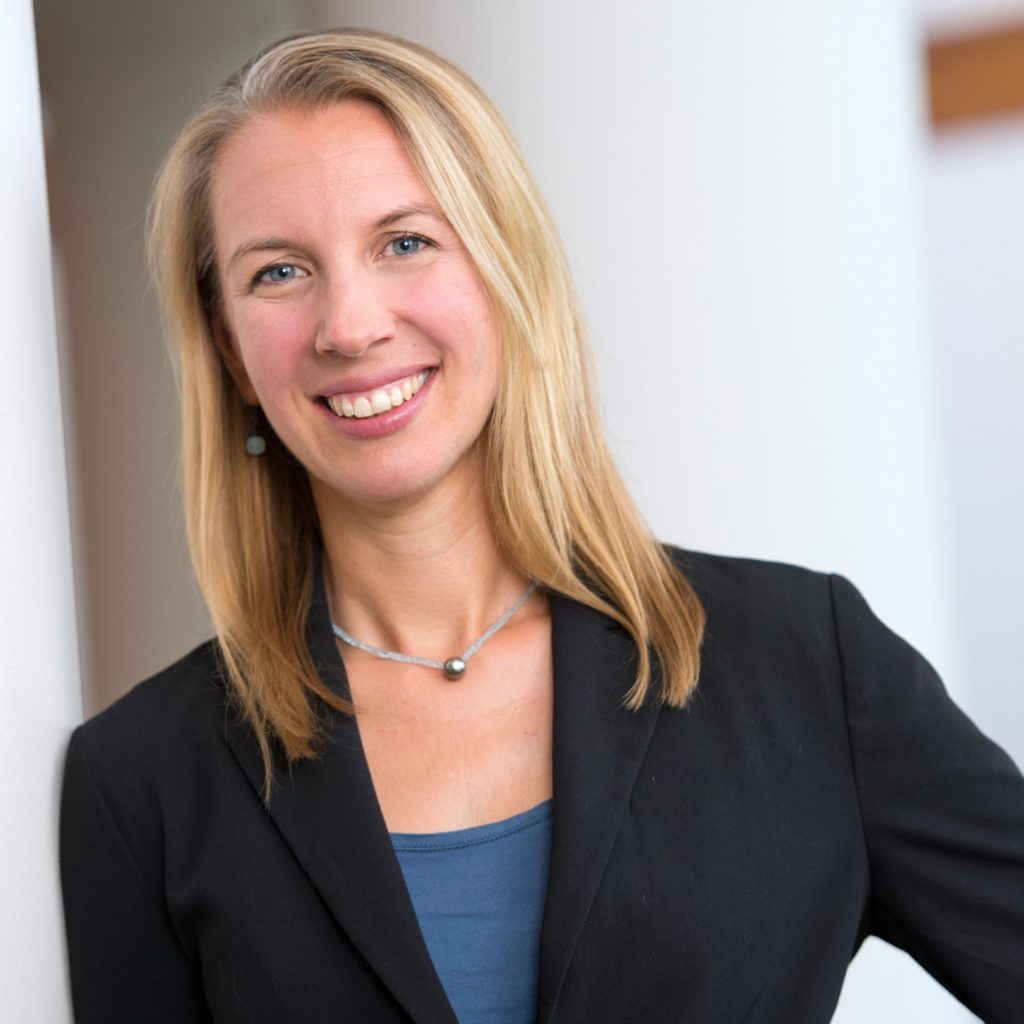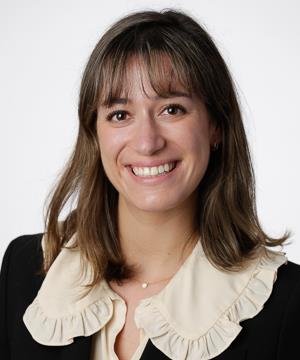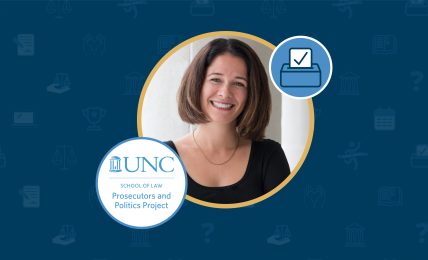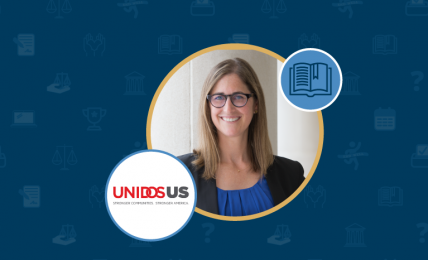
By Michele Lynn
Each year, thousands of immigrants seek asylum in the United States, with many of those cases heard in the federal immigration court in Charlotte. The vast majority of those petitioning for asylum cannot afford to retain an attorney to represent them. With the desire to help these individuals and families while providing an opportunity for learning and service for UNC School of Law students, Kaci Bishop ‘04 got involved.
Bishop, clinical professor of law at the UNC School of Law, directs and teaches the school’s Immigration Clinic, which provides direct assistance to those who have fled persecution in their home countries and to those who are survivors of domestic or sexual violence, human trafficking, or other crimes. She and Duke Law colleague Kate Evans, who runs Duke’s clinic focused on immigration law and policy, partnered to create a project allowing Carolina and Duke law students to help asylum seekers.
In collaboration with the Charlotte Center for Legal Advocacy (CCLA), a legal services organization, the professors created a two-day training in February 2022 for students who volunteered to help. The 10 Carolina students and 14 Duke students—in pairs or on their own—were then matched with an asylum seeker, identified by CCLA, who did not yet have representation. The students assisted the asylum seekers in completing the I-589 immigration form, which must be filed within one year of entering the country and being detained at the border.
“The Charlotte Immigration Court has one of the highest denial rates for asylum cases in the country,” says Bishop. “Our hope is that by having our students help asylum applicants to have more developed asylum claims and filing their applications on time, the asylum seekers will have more time to get full representation.”
Bishop says that even if the asylum seekers are unable to get full representation for their case, immigration judges have a duty to help pro se applicants—those representing themselves— flesh out their record. “We hope that when our students help asylum seekers convey a fuller picture of their claims in the application, it will help the judges have more information than if clients had completed the application on their own,” she says.
Immigrants who have representation have a higher chance of a successful claim, increasing their chances by almost 100%. According to the Transactional Records Access Clearinghouse (TRAC) at Syracuse University, in 2020, asylum seekers without representation were granted asylum less than 18% of the time while those with representation received asylum 31% of the time. The number of asylum seekers without representation has only increased since then, exacerbated by the pandemic, among other factors.

KA Robinson 3L, one of the student volunteers, praised her experience. “UNC does a great job of getting students involved with pro bono projects, which is not only an amazing way to get good practical experience but also to help the community,” she says. Robinson assisted a Venezuelan man who is seeking asylum based on religious persecution for himself and his daughter. In four phone calls over the course of a month, assisted by an interpreter, Robinson listened to the man’s story about why he left his native country, developed that into a claim that maximizes the chance of asylum for him and his daughter, and then helped prepare the documents to file the claim.
“Working with my client was very emotional,” says Robinson. “There was a point where the translator, the client, and I all got choked up. And while that’s really hard, it’s also an amazing experience that you don’t get with other types of law. It makes me realize how important the work is and how much the law can change someone’s life.”
Bishop says that having an asylum seeker’s story heard by students constitutes a win. “With immigration, and especially with asylum cases, we can’t only count success as somebody getting asylum because it’s so difficult to achieve,” she says. “When our students provide a forum to listen to someone’s story, validate their experiences, help convey their story, and give them the best chance that they have of winning their case, I consider that success.”
This collaboration will be offered at least once per semester going forward. The partnership was so successful that CCLA also wants to partner with Carolina and Duke to have law students volunteer in the pro bono room the nonprofit offers in the Charlotte immigration court. “Our students will be assigned at least one intake per semester so they get a glimpse of the whole process—investigating the facts of the case, spotting issues, and determining what remedies might exist for a client,” says Bishop. “It’s a testament to our students that this project is continuing and expanding.”



